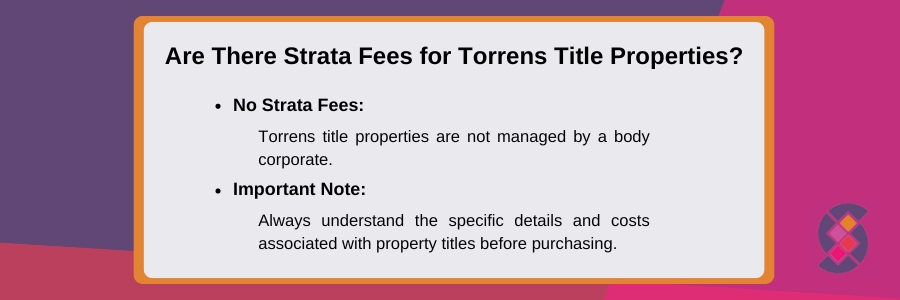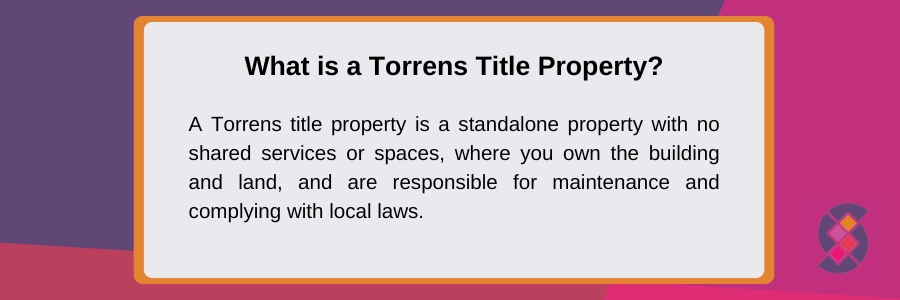Torrens Title vs Strata Properties – What’s the Difference?
Torrens Title vs Strata Properties – what exactly is the difference and what does each of these property title types mean for owners in Australia.
Whether you’re a current homeowner, prospective buyer, or simply looking to learn more about property ownership, this guide will help you to understand the key differences between Torrens and Strata Title properties as well as the benefits, responsibilities, and legal implications that come with each property title type.
What is a Torrens Title Property?
A Torrens title property refers to an allotment of land that is completely separate from others and does not feature any shared services or shared spaces like you might find in a Strata title property.
In Australia, a Torrens title property is the most common and traditional type of land property title. When you purchase a property on a Torrens title, it guarantees that you own the building and the land that it stands on.
Owners of a Torrens title property are responsible for maintaining the property including the land around it, the gardens, and any other spaces that are registered on the Torrens title. Owners of a Torrens title property are required to follow local council laws and regulations and may be required to have contact with their local government to address any legal obligations or gain approval for works to the property or land.

What is a Strata Managed Property?
A Strata managed property, or a Strata property title is a property ownership structure that shares the communal costs for maintaining the land and building spaces shared by multiple occupants. In South Australia, properties such as units, townhouses, and other shared living arrangements will typically fall under either the Strata Titles Act of 1988 or the Community Titles Act 1996.
Properties with a Strata property title are responsible for their unit or property within a building or shared space. Other costs for shared spaces, such as gardens, parking areas, and communal facilities (like pools and gyms), fall under the umbrella of strata. These costs are covered through strata fees that fund the maintenance of these areas.
The collective management of shared spaces on Strata property titles ensures that common areas are well maintained and that all residents are responsible for the upkeep of the shared spaces. Strata property titles are governed by a set of rules and regulations that are set out in the bylaws or articles.
Pros & Cons of a Torrens Title Property
Owning a Torrens title property means that you own the building and the land on which it sits. For many, a Torrens title property is the Australian dream. Your own land, your own space, and the freedom to do what you like (within reason). So, let’s take a look at the pros and cons of a Torrens title property.
Pros
- Autonomy over repairs and upgrades to the building
- Potentially greater privacy
- Make changes and repairs in-line with your current financial situation
Cons
- Sole responsibility for building repairs, whereas in Strata, repairs, maintenance, and funds are usually handled by a strata management company.
- Responsible for taking care of things like gardens, pools, etc. all of which can carry large ongoing expenses.
- Generally less environmental friendly due to the larger land footprint per person
- Generally not located as close to amenities (such as shops, work, transport, education, health facilities) as Strata properties at the same price.
- Typically more expensive than strata titled properties

Do you Pay Strata Fees on a Torrens Title Property?
No, in Australia Torrens titles are not managed by a body corporate and therefore there is no payment of strata fees. Owners of Torrens title properties are responsible for the upkeep and maintenance of their property.
Before you purchase a property – it’s important to understand the specific details of the property titles and understand all costs that may be involved.



